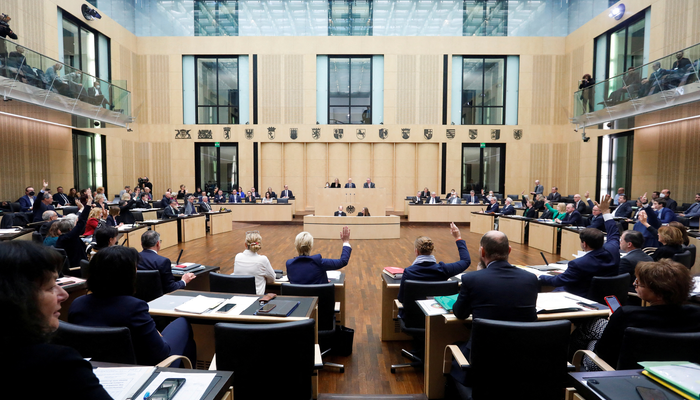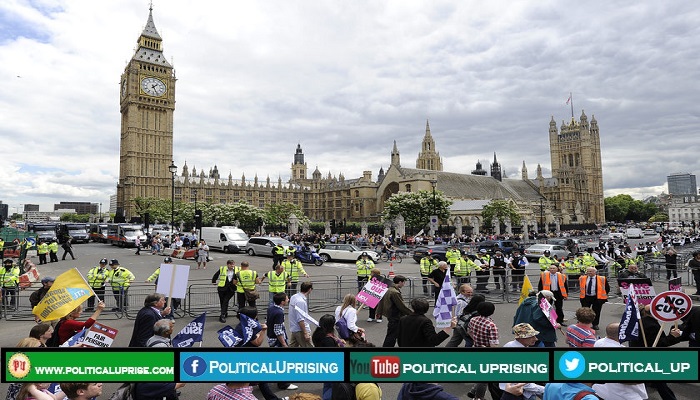Germany’s ambitious borrowing plan has successfully cleared its final hurdle, paving the way for the country to raise significant funds to address economic challenges.
The move marks a pivotal moment in Germany’s fiscal policy, with the government set to leverage the borrowing spree for investments in infrastructure, social programs, and economic recovery.
While the decision has sparked discussions about long-term debt sustainability, supporters argue it is essential for Germany’s growth and stability.
Germany’s Bundesrat upper house of parliament on Friday approved plans for a spending splurge that aims to revive growth in Europe’s largest economy and scale up the military, clearing the final hurdle for the historic policy shift.
Farmers protesters blocked Berlin roads
Ending decades of German fiscal conservatism, the legislation creates a 500 billion euro ($546 billion) fund to spend on infrastructure and eases strict borrowing rules to allow higher spending on defence.
The conservatives and SPD, who are in talks to form a coalition after last month’s election, pushed the package through the outgoing parliament in case it was blocked by an enlarged contingent of far-left and far-right lawmakers in the next Bundestag starting on March 25.
Merz’s Borrowing Plans Face Final Legal Challenge in German Court
Chancellor-in-waiting Friedrich Merz has defended the tight timetable, which angered fringe opposition parties, by pointing to a rapidly changing geopolitical situation.
European leaders fear shifts in U.S. policy under President Donald Trump in particular could leave the continent exposed to an increasingly hostile Russia and assertive China.
“The threat from the East, from Moscow, is still present, while the support from the West is no longer what we were once accustomed to,” said Bavarian Premier Markus Soeder.
“I am a convinced transatlanticist, but the relationship of trust in the United States of America has, at least for me and for many others, been deeply shaken. The Germans are worried.”
The reforms mark a major rollback of the so-called ‘debt brake’ imposed after the 2008 global financial crisis but since criticised by many as outdated and putting Germany into a fiscal straitjacket.
“Let’s be honest: Germany has, in part, been run into the ground over the course of decades,” said Berlin mayor Kai Wegner. “Our infrastructure has, in recent years, been more managed than actively developed.”
“For far too long, we’ve only done the bare minimum – and it cannot, must not, continue this way,” he said.
Soeder called the package a “Marshall Plan”, referring to the U.S. economic aid credited with revitalising the European economy after World War Two.

Still, economists say it will take time before the stimulus kicks in and helps boost an economy that has contracted for two consecutive years.
“It will probably still take until the middle of the year before the prospective new government passes a regular budget for 2025,” said Berenberg economist Salomon Fiedler.
“Thus, it would take until later this year before new spending initiatives start coming in.”
Moreover, bureaucratic procedures that are needed to launch spending plans, as well as chronic labour shortages, are expected to delay the positive ripple effect.
The approval of the legislation hands Merz, whose conservatives won last month’s election, a major victory before he is even sworn in as chancellor.
But it has also cost him support. Merz spent the election campaign promising not to immediately open the spending taps only to announce a tectonic shift in fiscal policy days after winning.
Some supporters, including within his own camp, have accused him of misleading voters. A poll released by broadcaster ZDF on Friday showed 73% of those surveyed felt deceived by him including 44% of voters for the conservative CDU/CSU bloc.
German Parliament Approves Merz’s Spending Surge, Winning Praise from Allies
The same poll showed support for the CDU/CSU down one point to 27% and support for the far-right Alternative for Germany up 1 point to 22%.
Merz said on Friday the accusations troubled him – and to some extent he understood them – but the course taken by the Trump administration meant he had to weigh whether to act quickly or wait.
“I know that I’ve now drawn heavily on my credibility, including my personal trustworthiness,” he said at an event in Frankfurt.
The 69-year-old hopes to conclude coalition talks with the SPD by Easter, with migration policy likely to prove a sticking point, given his conservatives’ desire for a much stricter stance.
Merz said if the next government does not tighten migration rules, then it might as well role out the red carpet for the far-right at the next election in 2029, after it came second in last month’s vote.
“And I have no intention of doing that,” he said.



